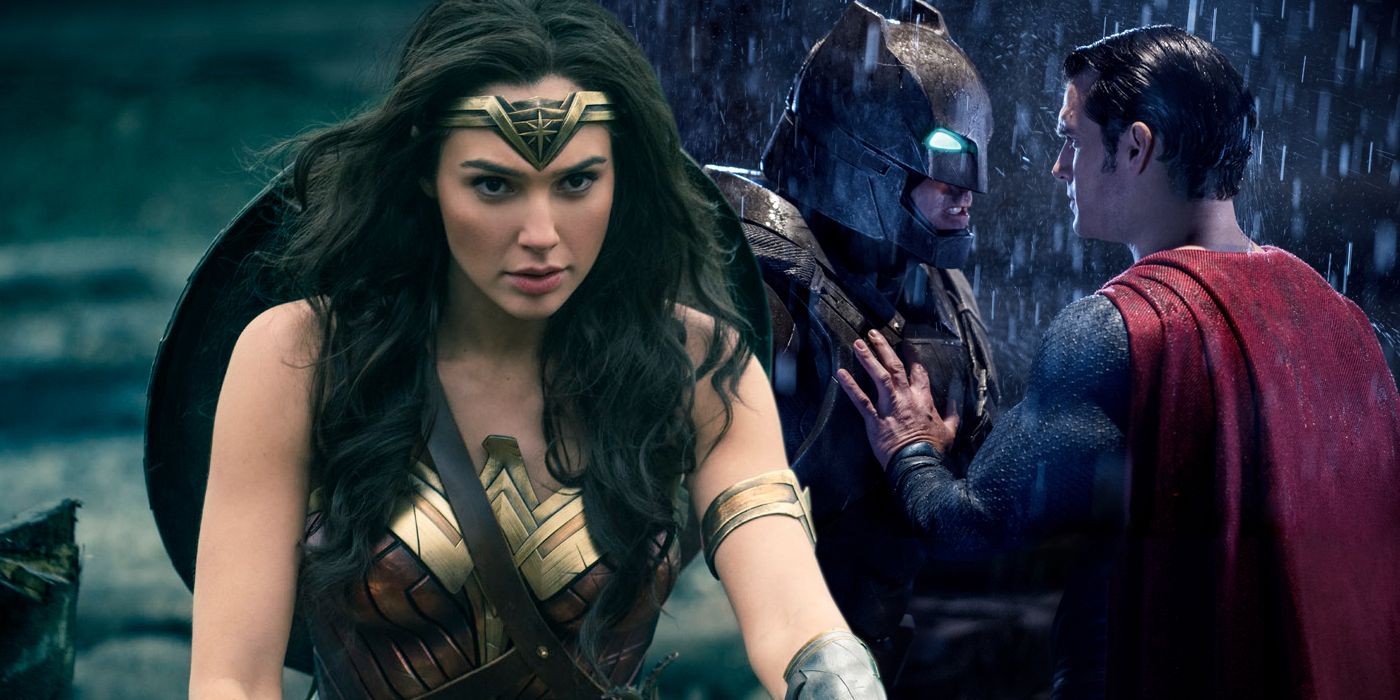Nobody ever assumed that launching a shared universe like that of Marvel Studios, DC Films, or any other major studio would be easy. But according to the head of marketing for the DCEU, the company's plans have changed for Wonder Woman - not because their original plan wasn't working... but because it worked a bit too well. It's a complex business, and one fans can't easily decipher - as evidenced by WB spending more on Wonder Woman's marketing than Suicide Squad, but coming under fire for giving Diana Prince less of the spotlight than Batman or Superman. So what's going on behind the scenes?
In the case of the DCEU and Wonder Woman, the challenge facing Time Warner's Chief Marketing Officer, Kristen O'Hara is a particularly broad one. While the company is using data analysis and artificial intelligence to learn more about its audience and consumers, and cross-promote between DC, HBO, or any other subsidiary, the cost and direction of marketing a shared universe of DC Comics superheroes is constantly changing. Especially after Batman V Superman changed their approach to more than just movies - and Suicide Squad showed they may have spent more on marketing than necessary.
Those insights come from O'Hara directly, speaking as part of Oracle's Modern Marketing Experience 2017 in Las Vegas, Nevada this week. O'Hara explained that while the public may see "movie marketing" as ads, trailers, or promotional partnerships, the new goal is to build momentum ahead of time, instead of, for lack of a better term, simply swamping the marketplace prior to release. One example was using The CW's Supergirl to measure the female fan base, which was then built and grown for Wonder Woman's release.
But O'Hara also offered an explanation of why Warner Bros. marketing has changed not just over the past decade, but specifically from the launch of its shared movie universe in Batman V Superman. The data collection surrounding that film marked yet another experiment from the marketing standpoint - one that has "shifted so much of how we go to market":
"...I think in a data-driven world the heroic marketing moments aren't those big, huge moments, they're an aggregate of tiny little moments that happen over a long period of time that help us get smarter and smarter about our customers [and] their behavior that help us to create better experiences for them... So in the case of Wonder Woman, this is a release that we started talking about two years ago. And when we started on the path... franchise management was going to be something we looked really closely at. How data could help us do better. So the collection of data across the entire DC franchise - whether it was video games, comic book releases, TV shows, or theatrical releases, all of which we have an aggressive slate - every moment mattered to us."
"[Batman V Superman] was the first release where we had a strategy to collect data from the first trailer drop. Not just for that movie, but across all DC franchises. Every single campaign from then til March of last year needed to be a data collection opportunity. We used a data-driven approach for that movie and since then, the organization thinks very differently, and is going to market very differently today.
It makes sense for all companies, but specifically DC Entertainment, to gauge how increased attention and marketing on a DC brand impacts all others. Without analyzing the actual data, it would follow that as Batman V Superman interest grew, so too would interest grow in the Injustice video games starring them in advertising, comic book sales of "The Dark Knight Returns" upon which the film's imagery was based, and so on, and so on. But that's an easier conclusion to draw than to prove, which is why O'Hara suggests a single release can be the culmination of years of marketing research and data tracking... kicking off a new cycle once it hits theaters.
The flip side of that issue promises to be the most interesting for shared movie universes - particularly those with the built-in audience, awareness, and cross-brand success of characters like DC's heroes. Comparing it to the perceived logic behind the growth of Marvel's Cinematic Universe, many critical of DC's strategy stated Marvel succeeded by building investment in the characters, both emotionally and through marketing. According to the details of Suicide Squad's release, though, that momentum and investment may not be so hard to attain:
"Six months after that movie came Suicide Squad. It was one of the first movies where we stopped spending before release, because the segmentation and targeting was so effective we were hitting our numbers pre-release."
In other words, the marketing strategies used to drive interest and engagement with the DCEU, the Suicide Squad, and its associated products worked so well, the company wound up ahead of their own release targets. On the one hand, that's good news, and proof that Suicide Squad's marketing potential and universally-praised trailers did most of the marketers' work for them. But on the other hand - from a business standpoint - it raises the question of where it can be improved, where less can be spent to reach those same goals at release, and how to use that information going forward.
Fans may already be seeing DC Films' using these new strategies, taking a step away from the traditional movie marketing approach of keeping details and production secrets under wraps, until the pre-release marketing blitz inundates the public. For Justice League's set visit, press were invited to view the production and share details almost immediately, revealing more about the plot, characters, and connections to future films than have yet to be shown in official trailers. The same for Wonder Woman's recent press invite to the editing bay with director Patty Jenkins.
For many fans, it's a long overdue shift, allowing the studio and creators to involve fans in the production and marketing conversation earlier. And while secrecy or, as O'Hara put it, "heroic marketing moments" like a massive trailer drop, Super Bowl TV spot, or actual releases may seem to have the greatest impact, it's getting harder to see the explicit benefit of that approach over smaller, targeted campaigns. The movie industry's most obvious form of marketing may be throwing a massive stone into a pond, and watching it dominate the news cycle until the ripples die. But would a regular stream of targeted pebbles create the same, or even better effect? And in the case of O'Hara's comments re: Suicide Squad... was every one of those massive splashes worth the time and energy before release?
At the end of the day, it's hard to see this shift as anything but better for nearly everyone involved. A marketing budget that swells to nearly as much as the cost of making the movie, if not more, has led to several high-profile "flops" in recent years. And while a "billion dollar box office" can be a feather in old-school executives' hats, and fuel for online fan debates, the fact that these movies need to make that much to be considered a viable hit doesn't promise longevity.
If the marketing behind the DC Comics brand (in all forms) is finding a path to success through targeted, cultivated fan bases as opposed to old habits, then it may allow them to work and spend smarter, not harder. Even if it means the public will never know which motor oil is the "official motor oil of Wonder Woman."
NEXT: Wonder Woman Marketing Built on Supergirl's Success
Source: Oracle MME, CMO.com.au




